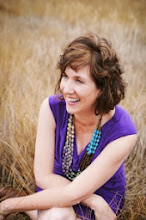How Much Time is Left on Your Biological Clock?
Women experience late-in-life motherhood for a variety of reasons.
When I interviewed women for Baby Changes Everything: Embracing and Preparing for Motherhood after 35, some women chose to wait to become moms until their mid-30s or 40s.
Others started having children in their 20s and continued right on through their 40s.
Still others had their mommy-dreams disrupted by infertility or divorce or found themselves waiting for Mr. Right.
Some chose to adopt and some, like me, were suprised by an over-35 pregnancy.
New research may help women who choose to delay motherhood by offering them a "roadmap" of their reproductive life.
In a 14 year study involving more than 600 women, the University of Michigan studied changes in hormones FSH and inhibin B, which stimulate eggs.
The study found hormones dropped significantly five years before menopause, meaning a woman was also at her least fertile.
The second study tested another 50 women each year for changes in the hormone AMH*, which is already used as a fertility predictor.
*AMH: Anti-Müllerian hormone is a marker for the number of remaining eggs a woman has.
AMH fell to a very low or non-measurable level five years prior to a woman's final menstual period.
Researchers said the information describes the reproductive ageing process, which could help women choosing to have later-in-life babies.
 In Others' Words
In Others' Words
 Follow Me on Twitter
Follow Me on Twitter




0 Comments:
Post a Comment
<< Home